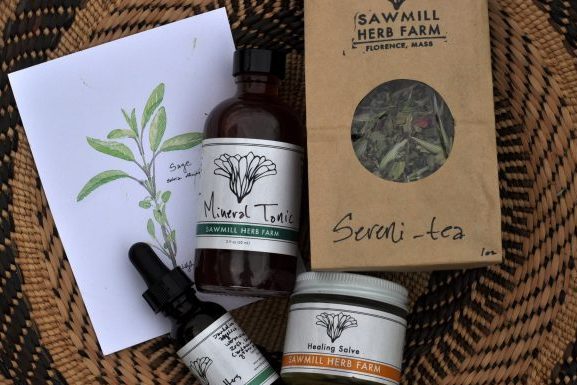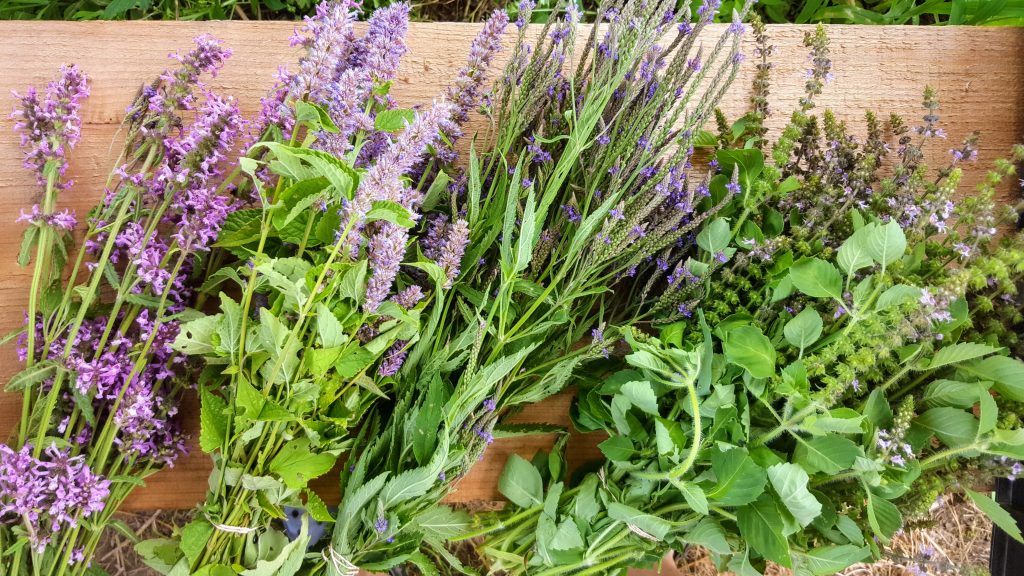Herb Profile: Wormwood

Wormwood was considered one of the most important herbs in medieval Europe. It is the most bitter of all herbs and is used as an aromatic bitter tonic for stimulating the appetite and digestion. It is also a general anti-parasitic used for treating a wide variety of parasites. It has been shown to be more effective against seat or pin worms, rather than more potent parasites. Matthew Wood recommends wormwood for those with chronic depression, a feeling of helplessness and especially when depression is accompanied by severe physical trauma.
Preparations
Wormwood is generally not used long-term due its intense bitterness and should not be used during pregnancy. The fresh herb and products made from it are considered nauseating and the dried herb is preferred. Wormwood contains thujone, which is toxic in large doses (a concern if the essential oil is used internally).
Dry wormwood for later use and make a cold infusion or a basic tea of the dried herb. For a tea, pour a quarter liter of boiling water over a half teaspoon of the dried herb, steep for five minutes. Drink 1-2 cups a week or 1/3 cup before a meal. Chew a fresh leaf or tincture the dried herb (very small doses are recommended).
Cautions/Contraindications
Large doses are toxic due to the thujone constituent. Not to be used during pregnancy.
🌿 Grow, Harvest & Learn with Us This Season! 🌿
Whether you're looking to fill your apothecary with vibrant, fresh herbs, start your own garden with strong, healthy seedlings, or deepen your knowledge of herbal medicine, we've got you covered.
Join our Fresh Herb CSA to receive weekly bundles of medicinal and culinary herbs, plus guidance on how to use them. Pre-order seedlings to get a head start on your herb garden with our carefully grown plants. Explore our herbal education programs to learn hands-on medicine-making, plant connection, and more.
Looking for high-quality, certified organic herbs year-round? We also offer dried herbs and small-batch tea blends, thoughtfully grown and harvested to bring you the best in herbal wellness.
Be part of a community that values resilience, self-sufficiency, and deep connection to the land. 💚
Sign up for the CSA, pre-order seedlings, shop our dried herbs and tea blends, or explore our herbal education offerings today!
Disclaimer
These statements have not been evaluated by the Food and Drug Administration. This product is not intended to diagnose, treat, cure, or prevent any disease. For educational purposes only. We do not endorse the websites linked to in the resources and have not extensively reviewed all the information on external pages for accuracy. Everyone reacts differently to herbs and we do not attempt to be completely inclusive in the information and contraindications for each herb. Trust your intuition if something is not feeling right for you.
Shop our Apothecary and Nursery
-

Apothecary Products
Nourish yourself and your family with a certified organic farm grown apothecary ...
-

Nursery Products
Grow your garden. We grow certified organic herb, flower and vegetable starts...


